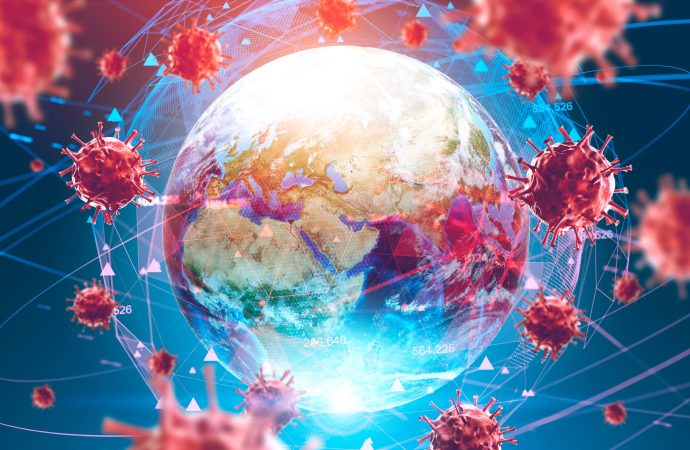During a global health crisis, such as the ongoing COVID-19 pandemic, access to healthcare services can become limited due to overwhelmed healthcare systems and restrictions on movement. This is where telemedicine plays a crucial role in providing remote healthcare services to individuals in need. Telemedicine allows patients to consult with healthcare professionals through virtual appointments,
During a global health crisis, such as the ongoing COVID-19 pandemic, access to healthcare services can become limited due to overwhelmed healthcare systems and restrictions on movement. This is where telemedicine plays a crucial role in providing remote healthcare services to individuals in need. Telemedicine allows patients to consult with healthcare professionals through virtual appointments, reducing the risk of exposure to infectious diseases while ensuring continuity of care.
Innovative solutions for managing global health crises through telemedicine include the use of telemonitoring devices to track vital signs remotely, virtual mental health counseling sessions to support individuals experiencing anxiety and stress, and telemedicine platforms that connect patients with specialists for specialized care. These solutions not only help in managing the current crisis but also pave the way for a more efficient and accessible healthcare system in the future.
Data Analytics and Predictive Modeling

Image by : Yandex
Data analytics plays a crucial role in managing global health crises effectively by providing insights into the spread of diseases, identifying high-risk populations, and monitoring the effectiveness of interventions. By analyzing data from various sources, including healthcare facilities, public health agencies, and social media platforms, public health officials can make informed decisions to mitigate the impact of the crisis.
Predictive modeling is another essential tool that helps in anticipating future global health crisis scenarios. By using mathematical algorithms to analyze historical data and trends, predictive models can forecast the trajectory of a disease outbreak, estimate the number of cases, and evaluate the impact of different intervention strategies. This proactive approach enables governments and healthcare organizations to prepare for potential challenges and allocate resources effectively.
Vaccine Development and Distribution Strategies
Accelerating vaccine development is crucial in controlling the spread of infectious diseases during a global health crisis. Through global collaboration and partnerships between pharmaceutical companies, research institutions, and government agencies, vaccines can be developed in record time without compromising safety and efficacy standards. The rapid development of COVID-19 vaccines is a testament to the power of international cooperation in addressing public health emergencies.
Implementing efficient distribution strategies is equally important to ensure that vaccines reach all populations, especially those in remote and underserved areas. By leveraging existing healthcare infrastructure, deploying mobile vaccination units, and utilizing digital platforms for appointment scheduling, governments can streamline the distribution process and achieve widespread vaccine coverage. These strategies are essential in achieving herd immunity and ultimately bringing an end to the global health crisis.
Mental Health Support Programs

Image by : Yandex
In times of crisis, the importance of mental health support cannot be overstated. The stress, anxiety, and uncertainty caused by a global health crisis can take a toll on individuals’ mental well-being, leading to a rise in mental health disorders and suicide rates. Innovative approaches to mental health support programs, such as teletherapy sessions, online support groups, and mental health apps, have emerged as effective tools in providing emotional support and counseling to those in need.
By integrating mental health support programs into the broader healthcare system, governments and healthcare organizations can ensure that individuals receive holistic care that addresses both their physical and mental health needs. Investing in mental health resources and destigmatizing seeking help for mental health issues are critical steps in building resilience and promoting overall well-being during a global health crisis.
Emergency Preparedness and Response Plans
Emergency preparedness is essential for managing global health crises effectively. By developing comprehensive preparedness plans that outline roles and responsibilities, establish communication protocols, and stockpile essential supplies, governments can respond swiftly to emerging threats and minimize the impact on public health. Regular drills and simulations help in testing the effectiveness of these plans and identifying areas for improvement.
Response plans must be innovative to address the unique challenges posed by global health crises. This includes leveraging technology for real-time monitoring of disease outbreaks, establishing partnerships with private sector organizations for resource mobilization, and engaging with communities to promote adherence to public health guidelines. By adopting a proactive and adaptive approach to emergency response, governments can better protect the health and well-being of their populations during times of crisis.
Conclusion:
In conclusion, innovative global health crisis management requires a multi-faceted approach that leverages telemedicine, data analytics, vaccine development, mental health support, and emergency preparedness. By embracing new technologies, fostering international collaboration, and prioritizing the well-being of individuals, we can effectively navigate through current and future global health crises with resilience and determination.
















